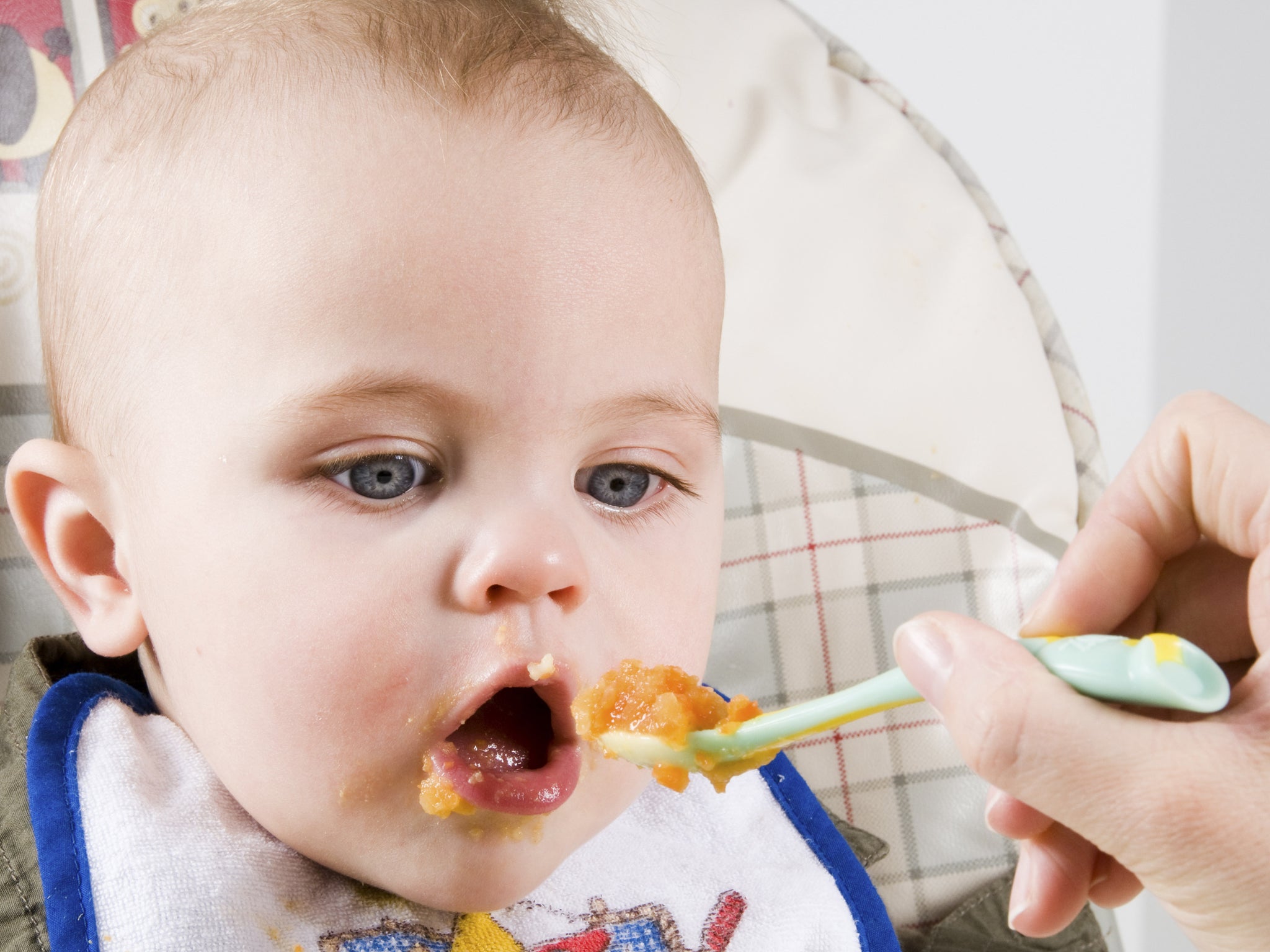Eat your greens, mums-to-be! It can stop your child being a fussy eater
Babies ' can learn very early on about good food, even before their first mouthful'

Your support helps us to tell the story
From reproductive rights to climate change to Big Tech, The Independent is on the ground when the story is developing. Whether it's investigating the financials of Elon Musk's pro-Trump PAC or producing our latest documentary, 'The A Word', which shines a light on the American women fighting for reproductive rights, we know how important it is to parse out the facts from the messaging.
At such a critical moment in US history, we need reporters on the ground. Your donation allows us to keep sending journalists to speak to both sides of the story.
The Independent is trusted by Americans across the entire political spectrum. And unlike many other quality news outlets, we choose not to lock Americans out of our reporting and analysis with paywalls. We believe quality journalism should be available to everyone, paid for by those who can afford it.
Your support makes all the difference.Babies learn about food flavours as early as the womb and mothers who regularly eat vegetables while pregnant can help to prevent their children from becoming fussy eaters later on, scientists have discovered.
A series of studies has shown that what a woman eats during pregnancy and breast feeding can significantly influence the type of food that her baby will prefer when being weaned.
The notorious difficulty of teaching very young children to eat healthy green vegetables rather than sweet, fatty food can be overcome if mothers realise how important it is to eat well themselves, scientists said.
“The good news is research shows that babies and their palates can learn very early on about good food, even before their first mouthful,” said Julie Mennella, a developmental biologist at the Monell Chemical Senses Centre in Philadelphia.
“Even before a child eats their first mouthful of food, they are learning about flavour through the amniotic fluid in the womb, and later through their mother's milk,” Dr Mennella said.
“The message is, eat the healthy food that you enjoy and when the baby is old enough to start weaning, they will already be familiar with those flavours,” she told the American Association for the Advancement of Science meeting in Boston.
One study involving 46 babies aged between six months and a year found that those whose mothers drank carrot juice regularly while pregnant or during the first three months of breast feeding ate almost twice as much carrot-flavoured cereal as those whose mothers did not drink carrot juice.
“It was the first time the babies ate solid food, and it shows how we are primed by our earliest exposures. The research shows that children are getting sensory information in the womb and through their mothers' milk,” Dr Mennella said.
Even bottle-fed babies can quickly learn to like the taste of vegetables if they are exposed to the flavour while weaning. In the space of just eight days, weaning babies will increase their consumption of green beans by more than a half if they are regularly given the food.
“Regardless of whether a child is breast or bottle-fed, it can still learn as soon as it starts to wean. If they are repeatedly exposed to fruit and vegetables early on, then they soon begin to accept these foods,” Dr Mennella said.
“By the age of two, there is no reason why a child should not have the same varied diet as an adult,” she told the meeting.
Babies are genetically programmed to like the taste of sweet, fatty foods because these are the flavours associated with high calories, whereas many vegetables can taste bitter because of the natural compounds made by plants to prevent being eaten.
“Babies are already biologically hardwired to be attracted to foods containing sugar and salt, but they have to be exposed to fruit and vegetables if they are to learn to accept and like these flavours,” Dr Mennella said.
“In the environment we evolved in, both sugars and salts were scarce. We are inherently trained biologically to like [the taste of] sweet and salt. Sweet is a signal for energy, the predominant taste of mother's milk. Salt is meat and minerals,” she said.
“My advice is: eat a variety of healthy foods that you enjoy while pregnant and breast feeding and once your child starts eating solid foods give them repeated opportunities to taste these foods so they can grow to learn to like its tastes.
”Looking at food doesn't work; they have to taste the food! Be a good role model,“ Dr Mennella said.
The food industry is preying on this natural preference for sweet things by adding sugar to foods aimed at children, which makes it even more difficult for them to say ”no“, Dr Mennella said.
”You cannot underestimate the power of sweets. It gives children a rush. In moderation, they are fine. But they need to consume a variety of food to lead a healthy life,“ she said.
”During the first months, what they are learning about food sets the stage for their long-term habits and health,“ she added.
Join our commenting forum
Join thought-provoking conversations, follow other Independent readers and see their replies
Comments